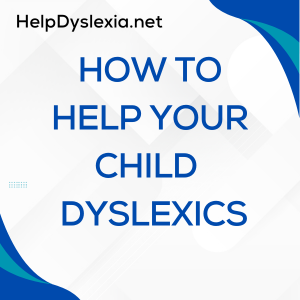Dyslexia can cause learning disabilities in reading, writing, and spelling in children and adults who are not properly diagnosed and treated. While there is no single test to diagnose dyslexia, most experts agree that if your child has dyslexia, you’ll be able to notice it by age 5 or 6 at the latest. If you believe your child may have dyslexia, use these tips to help them overcome their dyslexia and succeed in school.
What is Dyslexia?
Dyslexia is a language-based learning disability that specifically impairs a person’s ability to read. People who have dyslexia often have trouble recognizing and remembering letter or word order, spelling words correctly, and pronouncing words. Research also shows that many people with dyslexia have poor listening skills, which can make it hard for them to follow directions given orally in a classroom setting. Reading takes place in many different areas of our brain; people with dyslexia may struggle because their brains can’t interpret information as quickly as those of other students. Although some signs and symptoms of dyslexia are noticeable at an early age, others are not obvious until children try to learn how to read.
What are common symptoms of Dyslexia?
Common symptoms of Dyslexia are reading errors, reversals of letters and words, omission or transposition of letters and words, and substitution of similar-looking but incorrect letters for one another. These symptoms can have a profound effect on a person’s life as they may experience academic difficulties and are more likely to drop out or be placed in special education classes. It is estimated that around 20% of people have some form of Dyslexia. Since only 5-10% have received a diagnosis it’s possible that many other people are suffering from Dyslexia without knowing it; if you suspect your child has Dyslexia consult an educational psychologist or ask for help from their teacher.
Things you can do if you suspect Dyslexia
The best thing you can do is take your child to an eye doctor. You may want to keep an eye on her for behaviors that could be signs of dyslexia, including letter reversal (b for d or p instead of q), and speech problems like trouble pronouncing words, stuttering, or using unusual words that are close in sound. You should also watch out for a low self-esteem that can come along with undiagnosed dyslexia. Also talk about it. Dyslexic kids often don’t know they have a problem until they start reading at school and realize they’re different from their peers, so bring up topics like spelling and writing early on in conversations if you think there’s a chance she has dyslexia.


